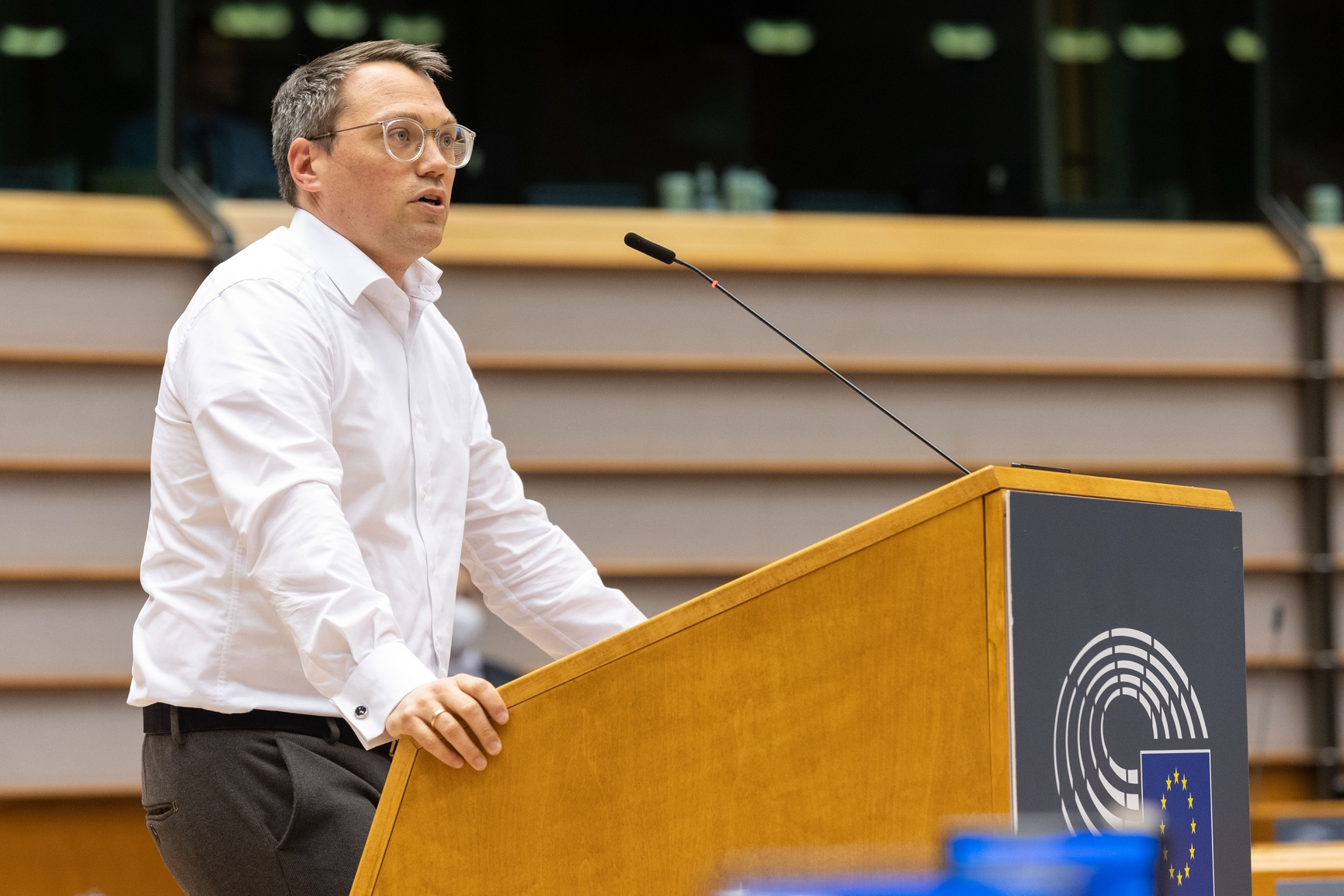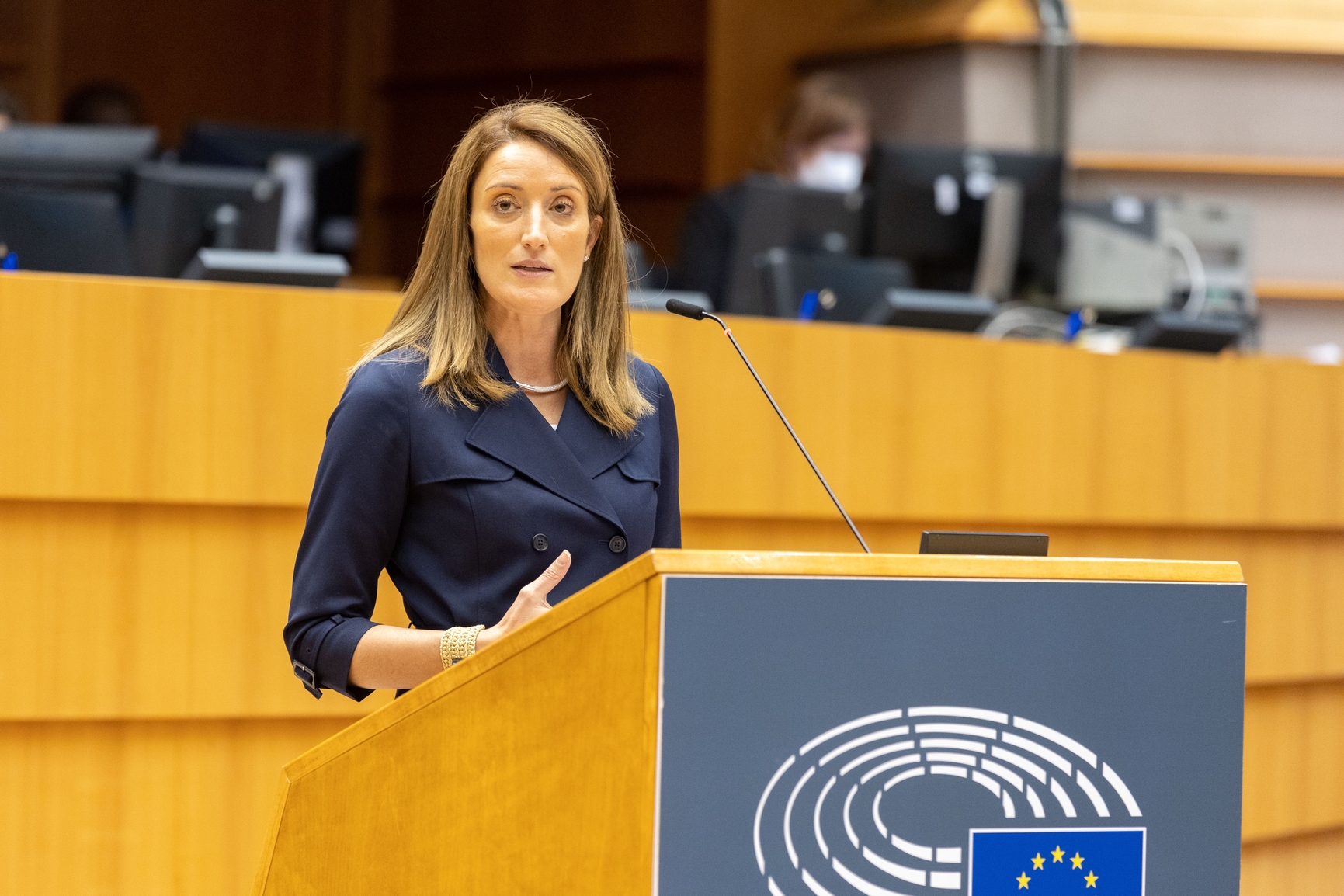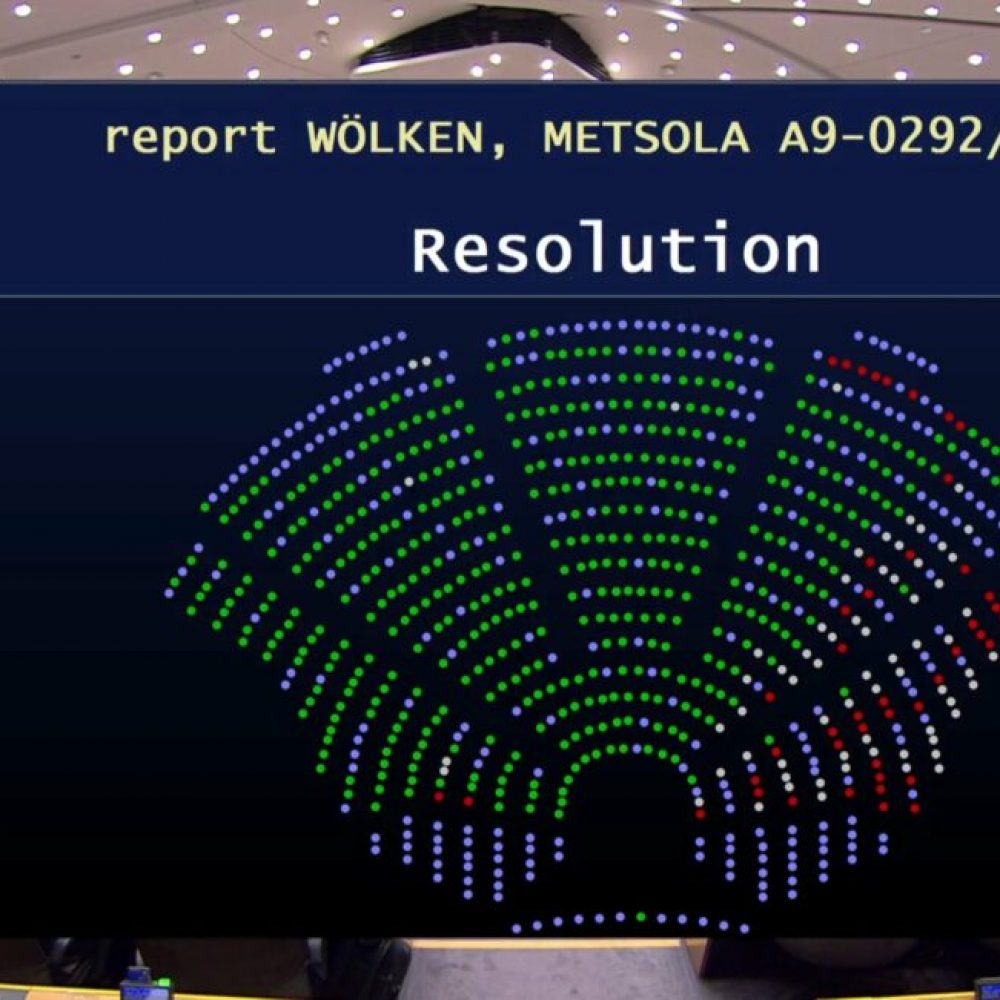The European Parliament has approved a resolution to counter the threat of Strategic Lawsuits Against Public Participation (SLAPPs), in a move aimed at improving the safety of journalists, civil society groups and NGOs across Europe.
SLAPPs are frivolous legal actions that take advantage of defamation laws in foreign jurisdictions to harass journalists with the goal of silencing their stories. In a typical SLAPP, the plaintiff doesn’t even expect to win the suit. Instead, the goal is to intimidate the defendant into self-censoring due to fears of the crippling legal fees they would have to absorb in order to defend themselves in a foreign court, particularly the UK.
The motion was spearheaded by Maltese MEP and European Parliament Vice-President Roberta Metsola and her fellow Rapporteur from the Committee on Civil Liberties, Justice and Home Affairs Tiemo Wolken.

The report calls on the European Commission to adopt minimum standards to protect victims, measures to prevent “libel tourism”, rules on early dismissal of abusive cases and sanctions for filing them, safeguards against combined SLAPPs, and EU funds to support victims of SLAPPs and their families.
The text highlights the imbalance of power and resources between claimants and defendants, with particular concern about SLAPPs being funded from State budgets.
Vexatious libel suits have long been used to silence critical voices in Malta, including Daphne Caruana Galizia, who was facing over 40 libel suits for defamation when she was killed with a massive car bomb in 2017. The cases were all brought against her by the subjects of her reporting on corruption, most of them politicians, including the disgraced former prime minister Joseph Muscat who continues to pursue his case four years after she was killed on his watch.
Her son, Matthew, described this as a “never-ending type of torture” which left the family with no choice but to continue these battles even after her death.
After Caruana Galizia was killed, it emerged that a SLAPP suit had also been filed against her in the US demanding €40 million ($44.8m). Every independent newsroom in Malta has faced the threat of SLAPP in the four years since her assassination — such a threat would effectively cripple the few independent voices in a country where political parties dominate ownership of the media.
Government ministers have also supported the efforts of third parties to limit press freedom. When representatives of Malta’s cash-for-passports concessionaire Henley and Partners contacted the government about their intention to hire Mischon de Reya, a well-known UK law firm, to financially cripple Caruana Galizia with UK-based legal action, then prime minister Joseph Muscat had replied, “I don’t object”. His chief of staff Keith Schembri said, “Thanks, Chris [Henley & Partners Chairman Christian Kalin]. This looks good.”
Caruana Galizia responded by publishing her email correspondence with Henley and Partners in full.
Joseph Muscat was asked about these messages during his appearance at the public inquiry into the journalist’s assassination. He claimed he “did not object” in order to “protect the interests of the country”.
“Without the IIP scheme,” he said referring to Malta’s decision to sell European passports, “people would be suffering today. [The scheme] was in the national interest.”
“From what did the country need protection?” asked lawyer Therese Comodini Cachia.
Muscat replied, “I have nothing to add”.
It was a clear example of ‘forum shopping’, a tactic where SLAPP perpetrators launch suits in ‘plaintiff-friendly’ jurisdictions thought to be likely to provide a favourable judgement, rather than file the lawsuit where the defendant lives.
The Shift also received a threatening letter from cash-for-passports concessionaire Henley and Partners just three weeks after the launch of the news portal, demanding the removal of an article that revealed the company’s alleged involvement in a passport scandal in the Caribbean country of Grenada.
It later emerged that most of the independent news media in Malta had complied after receiving similar threats from the Iranian owner of a now-defunct bank that Caruana Galizia had linked to money laundering; the removal of the articles effectively altered the public record and citizens were not informed.
Rather than defend press freedom in the face of abusive foreign lawsuits, then Justice Minister Owen Bonnici shot down a Private Member’s Bill for the protection of Maltese journalists against SLAPP, insisting that it went against European law.
His claim was dismissed by then European Commissioner for Justice Věra Jourová, who said an EU member state had a right to protect their nationals against SLAPP from within the EU as long as it was done in good faith and in line with declared public policy.
The public inquiry into Daphne Caruana Galizia’s assassination made several recommendations to remedy this abusive situation, including the creation of an Ombudsman on journalistic ethics and a revision of the Media Defamation Act to address the problem of vexatious libel cases. Prime Minister Robert Abela has agreed to implement the inquiry’s recommendations but has not committed to a timeline for doing so.
The fight for freedom of expression has now been taken to Brussels.
Until the endorsement of this new anti-SLAPP report in the European Parliament, EU Member States lacked a harmonised set of minimum standards to protect journalists, academics, civil society, NGOs, and to ensure that fundamental human rights are upheld. Until now, no member state has passed specific legislation against SLAPPs.

MEP Roberta Metsola described the European Parliament’s approval of the report by an overwhelming majority as sending a “strong and united” message on the importance of protecting journalists.
Now that the report has been adopted by Parliament, it will be used to pressure the Commission into adopting an EU-wide directive that must be transposed into member state law.
“The real challenge now is to get the Commission and Council on board,” she said. “I can assure you the parliament will not stop. We are strong enough to put that pressure on the Commission. Yes, we need political will and political pressure, we have done it before, we will do it again.”
The Shift asked what would happen if a member state refuses to comply. “If they do not apply EU primary or secondary law, they can be sued by the Commission,” Wolken said. “The EU can force them to apply it.”
Justice for Journalists Foundation and the Foreign Policy Centre are holding the first UK Anti-SLAPP conference on Monday 22 November and Tuesday 23 November.
The following project is weekly Maltese Roundups prepared by The Shift News (Malta) offering the latest news in the Daphne Caruana Galizia case.

